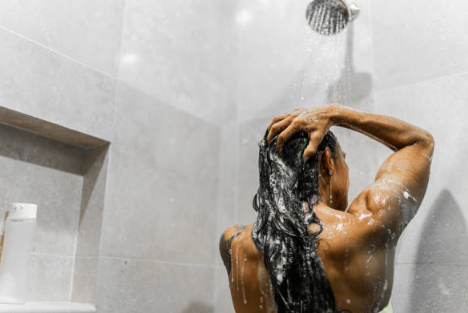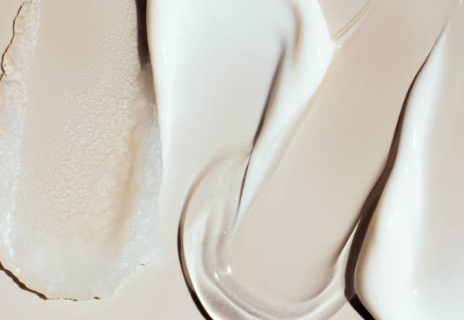Dry skin is something nobody wants to deal with—and yet, many of us unknowingly make it worse through everyday habits. While the market is full of products that claim to hydrate, soothe, and repair dry skin, sometimes the real culprit is your bathing routine. Here are seven common shower mistakes that can contribute to dry skin—and what to do instead.
1. Taking Hot Showers or Baths
There’s nothing more comforting than a hot bath or steamy shower after a long day—but unfortunately, hot water isn’t great for your skin. According to board-certified dermatologist Dr. Thomas Griffin of Philadelphia, hot water strips away your skin’s natural oils and moisture, leading to dryness, dehydration, and flakiness.
As tempting as hot water may be, it’s best to use warm water instead, and try to keep your showers under 15 minutes. The less time you spend soaking, the better. Your bathroom shouldn’t feel like a sauna, and you shouldn’t have to wipe steam off the mirror when you leave.
To help protect your skin, consider using a moisturizing shower oil, like Le Labo’s, during your shower. Bonus tip: Hot water can also dry out your hair and cause color to fade faster, so rinse your hair with cooler water when possible.

2. Using Bubble Baths and Harsh Products
Fragrant bubble baths and heavily scented soaps may smell amazing, but they can be major irritants—especially for sensitive or dry skin. Fragrances can trigger itching, rashes, or eczema flare-ups in some people.
If that sounds like you, switch to fragrance-free products. Keep in mind: “fragrance-free” and “unscented” are not the same. Unscented products may still contain masking fragrances to cover up odors.
Skip the bubbles and add soothing ingredients like colloidal oatmeal or powdered milk to your bath for a relaxing, skin-friendly soak.
3. Shaving the Wrong Way
Shaving can lead to dryness, bumps, and irritation—especially if you’re shaving against the direction of hair growth for a closer result. While this technique can give you smoother skin in the short term, it can also cause ingrown hairs and razor burn.
To make shaving less irritating:
-
Shave during your shower, after your skin has softened—this should be your second-to-last step.
-
Use a moisturizing shaving cream or gel. Soap alone isn’t enough.
-
Avoid cheap shaving foams, which often dry out the skin and increase the risk of cuts or bumps.
-
Choose products with hydrating ingredients like aloe vera or natural oils.
-
Avoid anything with alcohol, which can be drying and irritating.
-
Change your razor weekly to keep it sharp and clean.
-
After shaving, rinse thoroughly to remove all product residue.
4. Skipping Moisturizer After You Bathe
This one’s essential: Always moisturize after your bath or shower. Locking in moisture immediately after cleansing helps keep skin soft, smooth, and hydrated. Don’t skip it—yes, even when you’re tired!
In colder or drier months, switch to a thicker body cream or lotion to help reinforce the skin barrier and trap moisture. For extra hydration, you can seal in your moisturizer with a layer of petroleum jelly, especially on areas like the hands or under eyes—just avoid this step if you’re acne-prone, as it can clog pores.
Keep your favorite lotion, cream, or body oil within reach in the bathroom. Apply it within 10 minutes of towel-drying, when your skin is still slightly damp. This helps your skin retain more hydration. If you’re using a body oil, apply it directly to wet skin—but be cautious, as oil can make your tub or bathroom floor slippery.

5. Over-Cleansing
Cleansing too often or using harsh soaps can strip your skin of essential moisture and protective oils. Many bar soaps and even some body washes—like Dial, Lever 2000, or Zest—are too harsh for dry or sensitive skin.
Instead, opt for gentle, hydrating, fragrance-free cleansers. Dr. Griffin recommends Cetaphil Gentle Skin Cleanser or Dove White Beauty Bar for those with dry skin. If your skin is very dry, avoid using soap all over your body more than once per day.
Be gentle—use your hands or a soft, clean cloth when applying cleanser, and avoid scrubbing too aggressively.
6. Over-Exfoliating
Exfoliation helps remove dead skin cells, but too much exfoliation can damage your skin barrier, leading to increased dryness, irritation, or even microtears.
Mechanical exfoliation—like scrubs, cleansing brushes, or washcloths—can be especially harsh. If you use them, go gently. During colder months, you may want to switch to chemical exfoliants, which can be milder on the skin. Look for formulas with lactic acid or glycolic acid, and use them no more than 1–2 times per week, depending on your skin’s tolerance.
In Summary:
Small tweaks to your bathing routine can make a big difference in managing dry skin. Swap hot showers for warm ones, avoid harsh ingredients, shave gently, and always moisturize. With a little extra care, your skin will thank you with a healthy, hydrated glow.